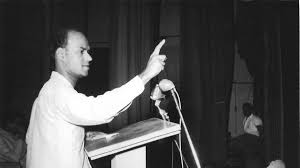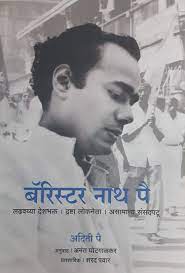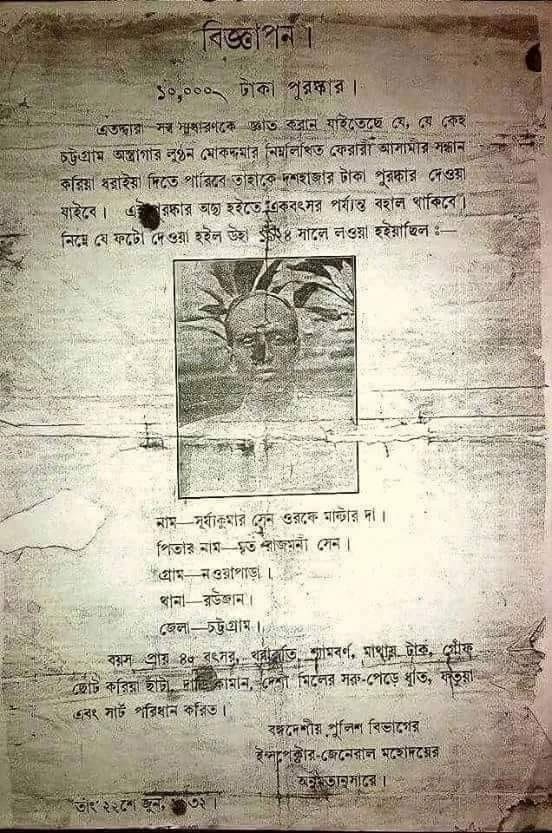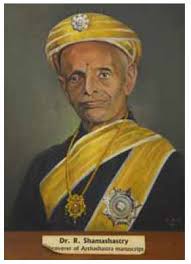#UNHEARD
He asked the PM if two different Nehrus reside in him—the idealist of 1926, who was moved to tears by the plight of the British working class or the PM of 1960, unmoved by the tearful appeals of his own employees.
Story of an Unsung MP, Barrister Nath Pai (1922-1971)


He asked the PM if two different Nehrus reside in him—the idealist of 1926, who was moved to tears by the plight of the British working class or the PM of 1960, unmoved by the tearful appeals of his own employees.
Story of an Unsung MP, Barrister Nath Pai (1922-1971)



whose research-backed speeches shook Nehru.
Pai may not be a name read too often in history books, but in parts of Maharashtra, especially the Konkan region comprising Ratnagiri and Sindhudurg, his loss is still mourned by people. He is widely hailed as the man who championed
Pai may not be a name read too often in history books, but in parts of Maharashtra, especially the Konkan region comprising Ratnagiri and Sindhudurg, his loss is still mourned by people. He is widely hailed as the man who championed
the cause of the Konkan railway, who toiled to ensure facilities such as roads and post-offices in the remote areas of the region, and who brought attention to his Lok Sabha constituency with his dazzling debates and arguments inside Parliament.
Born on September 25, 1922 at
Born on September 25, 1922 at
Vengurla, Pai In 1948, with money collected from relatives and a small scholarship, sailed to study law at England’s Lincoln Inn. Here, he was exposed to socialism.
As the first non-European president of the International Union of Socialist Youth (IUSY),
As the first non-European president of the International Union of Socialist Youth (IUSY),
he drew international attention to the cause of the liberation of Goa, a movement he had been involved with ever since he had met Ram Manohar Lohia in 1948.
Nath Pai was elected from the Rajapur Lok Sabha seat on the Praja Socialist Party.
In three consecutive terms—
Nath Pai was elected from the Rajapur Lok Sabha seat on the Praja Socialist Party.
In three consecutive terms—
he passed away while campaigning for the fourth in 1971—he raised macro and micro issues to serve Konkan’s interests. In May 1961, he stood on debris-filled roads clearing the fallen trees. His physical presence in the cyclone energised the PSP volunteers. Using his personal
connect with PM Nehru and CM Yashwantrao Chavan, he succeeded in getting relief for the remotest hamlets. In Mumbai, he formed the Konkan Vikas Parishad—an apolitical platform, which worked towards the Hirve Konkan Nandanvan goal. As early as 1959, Pai spelt out the need for
development funds for a highway, railway and steam boat services, so as to establish connectivity with Mumbai. He urged for electricity generation from the Koyna Dam, and subsidy to local cashew farming and fishing industries, so that the youth from Konkan don’t flock to Mumbai
in search of employment.
When Pakistan President General Ayub Khan called the Indian leadership irresponsible and childish, Pai in Parliament retorted that Khan had no business to mock the Indian government, as the leaders are the choice of the people of India, irrespective of
When Pakistan President General Ayub Khan called the Indian leadership irresponsible and childish, Pai in Parliament retorted that Khan had no business to mock the Indian government, as the leaders are the choice of the people of India, irrespective of
political differences. “...had it not been for the struggle led by Indian leaders, General Khan would have been a Brigadier clicking his heels before some British commander,”.
In the Indian general elections of 1957, Pai, as a member of the Praja Socialist Party, won the
In the Indian general elections of 1957, Pai, as a member of the Praja Socialist Party, won the
Rajapur seat by a margin of 100,000 votes. During his 14-year-long stint in Parliament, he was acclaimed for his evocative oratory and deeply studied debates on matters of defence, finance and foreign affairs. “Nath stood out for his integrity, eloquence and patriotism. When he
rose to speak, people listened with respect.
Pai relied on rich sources like the Upanishads, Vedas and oral folk traditions. Pai would sit for hours in the Parliament library to do his homework. In any given argument, Pai quoted a variety of voices—John Keats, VD Savarkar,
Pai relied on rich sources like the Upanishads, Vedas and oral folk traditions. Pai would sit for hours in the Parliament library to do his homework. In any given argument, Pai quoted a variety of voices—John Keats, VD Savarkar,
Santa Dyaneshwar and senator J William Fulbright—to elucidate his point.
Pai held the belief that the wishes of the people were supreme in a democracy. Hours after he addressed a mega public gathering in Belgaum, he died of a heart attack at the age of 48. His colleague and
Pai held the belief that the wishes of the people were supreme in a democracy. Hours after he addressed a mega public gathering in Belgaum, he died of a heart attack at the age of 48. His colleague and
friend Atal Bihari Vajpayee mourned his death in Parliament by saying: “He carried the burning fire of patriotism in his heart, a desire for the equality of all humans in his soul and had unwavering compassion for all.
He was a magician with words and could leave his audience spell-bound.”
Boards bearing his name at the Sindhudurg airport will now serve to remind people of his life and work.
#ForgottenHeroes
#BarristerNathPai
#Punyasmaran
#VANDEMATARAM
Boards bearing his name at the Sindhudurg airport will now serve to remind people of his life and work.
#ForgottenHeroes
#BarristerNathPai
#Punyasmaran
#VANDEMATARAM

• • •
Missing some Tweet in this thread? You can try to
force a refresh


















